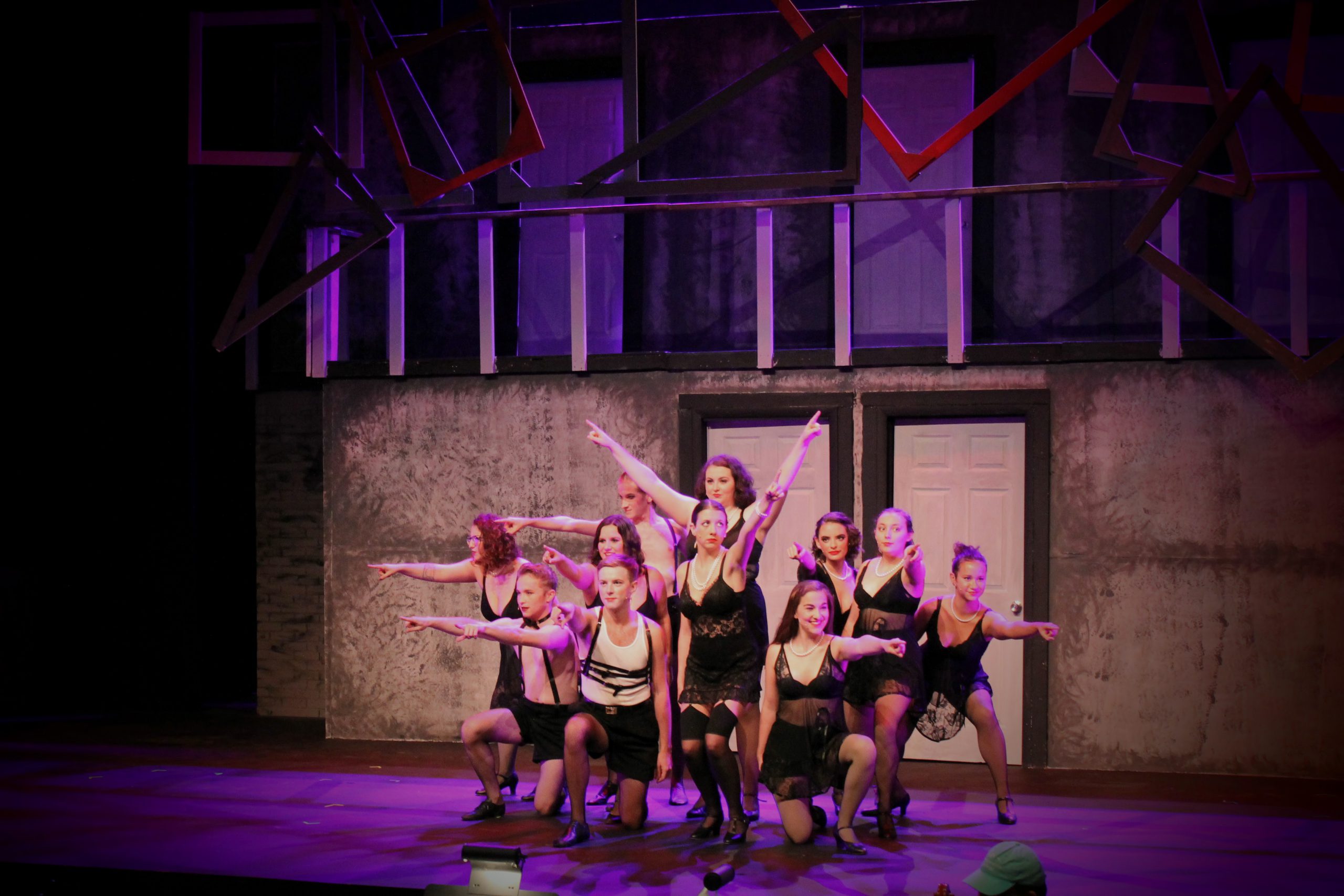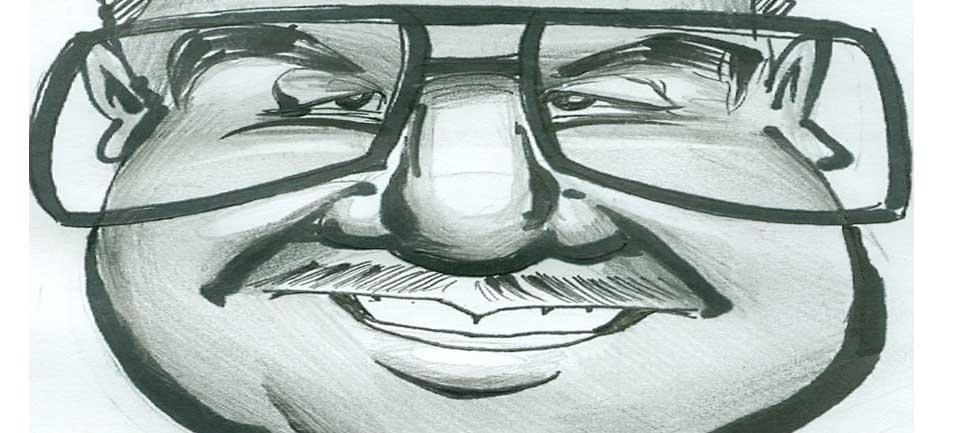Featured Image: “Cabaret” cast rehearses before performing from Oct. 6 – 9. Ross Winner|Marlin Chronicle
In a smoky, darkened theater, scantily clad women dance seductively. The lights and every eye in the room is on the women with names like “Texas” and “Lulu,” while a sleazy man threads between them, introducing them and showing them off. A pause, then every light turns to one woman, introduced as Sally Bowles, who sings sensuously while performing a carnal dance on a chair.
“Cabaret,” a musical about a nightclub in 1930s Berlin, is coming to Brock theater at VWU on Oct. 6 and running until Oct. 9.
“Cabaret” is based on the life of Christopher Isherwood, a writer who was in Berlin for the last months of the Golden Twenties.
The story follows Clifford Bradshaw, an American writer played by Jacob Underwood, and Sally Bowles, played by Sophia Kaminaris, the lead dancer at the KitKat club.
The KitKat club is a seedy burlesque strip club, run by the sleazy but memorable Emcee, played by VWU alumni Michael McOsker. The show is set in the late 1930s, following a burgeoning love story between Bowles and Bradshaw. The musical is undershot with the increasingly pervasive rise to power of the German Nazi Party, gradually influencing every plot and character in the musical.
Dr. Travis Malone, professor of Theatre, dean of the Batten Honors College and director of “Cabaret,” said that the reason the department chose this show was in part due to the message. He said that history has a lot to say to us, and that the musical offers a great cautionary tale regarding fascism.
The other reason this musical was picked by the Art Department was the juxtaposition of 1930s Germany and the lively music.
“What I really love about this musical is how it plays tension,” Malone said. “It draws the audience in with really catchy lyrics and tunes with really dark material.”
The songs are a major selling point of this musical, with tons of really bombastic, memorable numbers. But listening to the lyrics can be chilling.
“I’m haunted by some numbers,” Malone said. “I love that the musical starts out so bold and bright, and then moves through this very dynamic change.”
The contrast between the hedonistic atmosphere of the KitKat club and the encroaching horror of the Nazi Party is visible and well done. The change happens in an instant, from scene to scene and sometimes line to line.
“There’s two songs in this show that really send shivers down my spine,” said Landon Rockwell, who plays one of the club dancers. “Those are the songs that are happy in the beginning and then the very last line changes the entire meaning.”
One of those songs, ‘If you could see her,’ actually previously had a line changed due to pushback over the new meaning of the song. The musical is being performed at VWU with the original line.
Part of what makes the musical so impactful is that the characters are so human. They dance, laugh and cry, just like everybody else.
“I think everybody can find a little piece of themselves within all of these characters,” Kaminaris said.
The show was put together in just six weeks, several weeks shorter than usual, in order to coincide with Homecoming. The turnaround was quick, which both Kaminaris and Malone described as a challenge. They are nevertheless confident that it will be a musical worth seeing.
“It’s come along incredibly,” said Kaminaris. “I couldn’t have asked for a smoother rehearsal process.”
This musical is a first show for many of the performers. It is Kaminaris’ first time as lead. She says that the experience has taught her that she is capable of more than she thought. She said that her favorite thing about playing Bowles is that the character’s personality is so different from her own. It’s more work, she said, but it’s also more fun. She said it has taught her to embrace uncertainty.
Malone said that the show has a straightforward message about standing by and watching something like the rise of fascism. He said that as the show goes on, the impact of fascism on all the characters you’ve come to know is visible.
Malone believes that theater is more powerful than movies as it presents ideas with living bodies rather than images. He said that feeling the energy of the performance and forming your own conclusions makes it harder to dismiss.
“Theater is a dangerous art form … we present the ideas for the audience to consider and think through,” Malone said.
Tickets for “Cabaret” are available for purchase at vwu.edu/the-arts-at-virginia-wesleyan/art-events.php, and are free for Virginia Wesleyan students.
By Victoria Haneline
vfhaneline1@vwu.edu

